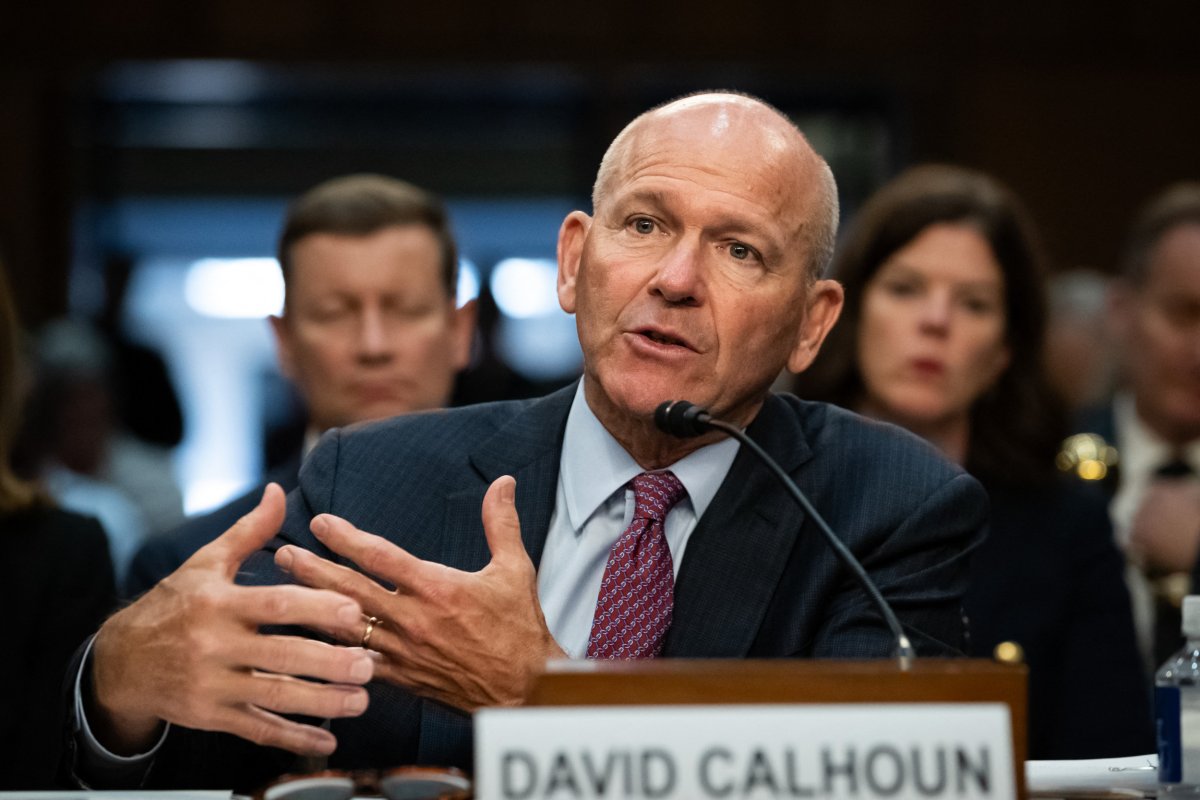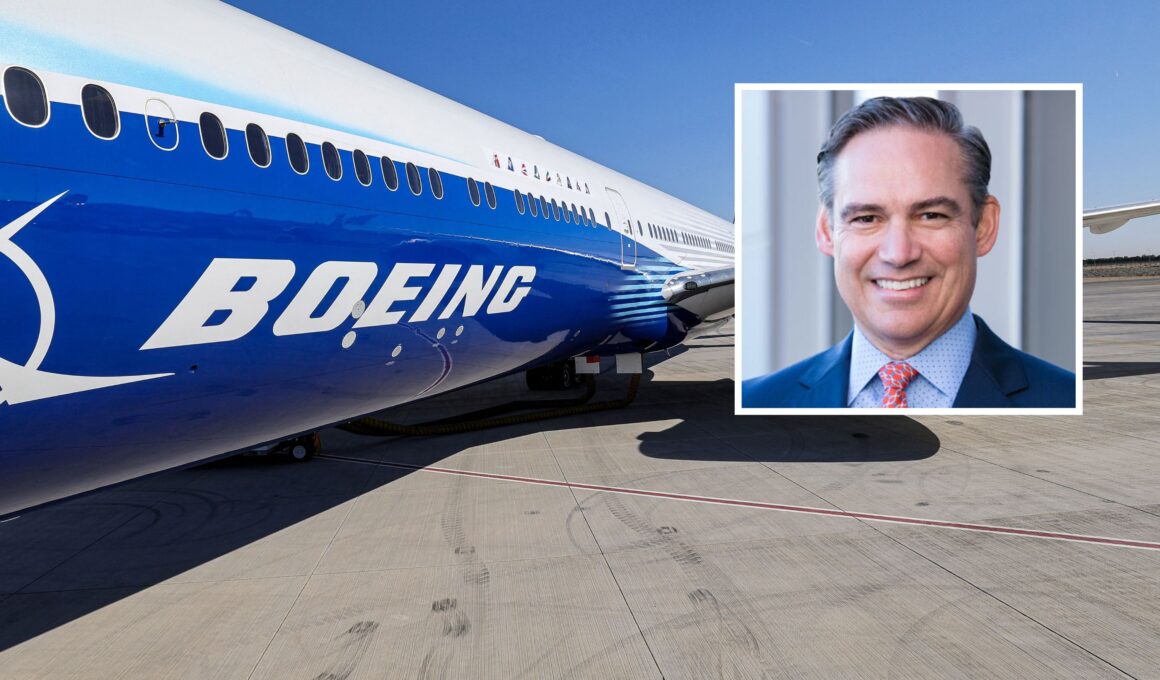Boeing has appointed Robert “Kelly” Ortberg as its next chief executive officer, giving the retired aviation industry veteran the keys to what has been called the toughest job in corporate America.
The announcement was made as the aerospace giant reported a heavy loss of more than $1.4 billion on falling revenue during the second quarter. Boeing has now reported an adjusted loss per share in 11 consecutive quarters, according to Bloomberg.
The disappointing results come at a tumultuous time for Boeing, which is the subject of multiple investigations into its safety culture and manufacturing quality—issues that will greet Ortberg when he takes over from the outgoing CEO, Dave Calhoun, next week.
The executive search was challenging, with reports indicating that many candidates didn’t want the top job at Boeing, which was once considered among the most desirable in the upper echelons of corporate America.
Boeing Chairman Steven Mollenkopf said that Ortberg was chosen after a “thorough and extensive search process” and possesses “the right skills and experience to lead Boeing in its next chapter.”
Experts consulted by Newsweek echoed Mollenkopf’s comments and praised Ortberg’s appointment, saying it sends “a strong message to the market” and will hopefully help Boeing get back on track.
“He does have industry domain knowledge. That means he knows the right questions to ask, he knows the customer base, and probably knows most of the senior leadership,” said industry analyst Addison Schonland of AirInsight.
Ortberg led the avionics behemoth Rockwell Collins from 2013 to 2018, as it merged with United Technologies and wound up as part of RTX, the company formerly known as Raytheon. He retired from RTX in 2021.
The new CEO’s appointment will take effect on August 8, taking over for Calhoun earlier than his scheduled departure at the end of 2024. One of the biggest criticisms of Calhoun’s tenure was whether he had the right resume for the job, given that he was trained as an accountant and had no engineering background.
Ortberg is a “deeply respected leader in the aerospace industry and brings more hope for a better future than the company has enjoyed in decades,” said Richard Aboulafia, a longtime aerospace analyst and consultant, and recently a harsh critic of the company.
‘Boeing’s chance to get back to basics’
Like Calhoun, who took over at the helm in the wake of the two 737 MAX crashes that killed more than 300 people, Ortberg inherits the leadership of a company facing ongoing crises and criticism from both inside and outside its walls.
Larry Kopp, founder and chairman of the PR firm TASC Group, said one way the new CEO can differentiate himself from his predecessor is by acknowledging the mistakes Boeing has made over the last few years, which have badly hampered its reputation.

“The new CEO must publicly accept responsibility for the company’s past mistakes, particularly the tragedies associated with the 737 Max crashes. This acknowledgment is crucial for rebuilding trust with the public and industry stakeholders,” Kopp told Newsweek.
“As Boeing seeks to understand why its sales have fallen, it must acknowledge that its response to the crisis has been incompetent and faulty.”
Ortberg emerged as a leading candidate only recently. Others who were reportedly considered for the top job included Patrick Shanahan, a former Boeing executive and now CEO of its most important supplier, Spirit AeroSystems, and another longtime Boeing executive, Stephanie Pope, who recently took over the commercial airplanes division.
But for Schonland, of AirInsight, opting for an outsider is actually a “good thing,” given the recent developments and denunciations from whistleblowers and former employees about a “toxic culture” within the company.
“He’s not from inside Boeing, which is excellent. They need an outsider with no preconceived notions or corporate baggage. An insider who has been a part of the culture may not recognize how the culture has created much of the problem,” he said.

Analysts believe his potential success hinges on his ability to revitalize Boeing’s commercial business, which would be a notable accomplishment.
“In the long term, it’s important to ensure the production process never gets so badly out of line again. Navigating the very long cycle and high cost of investment in the next generation of airplanes will be key, and not at all easy,” said Nicolas Owens, an analyst at Morningstar who follows Boeing.
The new CEO’s first task, Owens said, will be working with the Federal Aviation Administration (FAA) to help Boeing reach its goal of increasing production of Max jets and paying down debt, as well as focusing on rebuilding its safety culture and manufacturing quality.
Questions remain about how Boeing will comply with FAA-mandated changes and regain trust from customers, investors and travelers. The company faces scrutiny for past safety issues, including a $244 million fine for the 737 MAX crashes. Additionally, Boeing is dealing with ongoing problems with its Starliner spacecraft and fierce competition from other aerospace firms and its main rival, Airbus.
“This is Boeing’s chance to get back to basics. By fixing past mistakes and focusing on safety and innovation, they can pave the way for a brighter future,” Kopp said.
Do you have a story Newsweek should be covering? Do you have any questions about this story? Contact LiveNews@newsweek.com
Uncommon Knowledge
Newsweek is committed to challenging conventional wisdom and finding connections in the search for common ground.
Newsweek is committed to challenging conventional wisdom and finding connections in the search for common ground.







